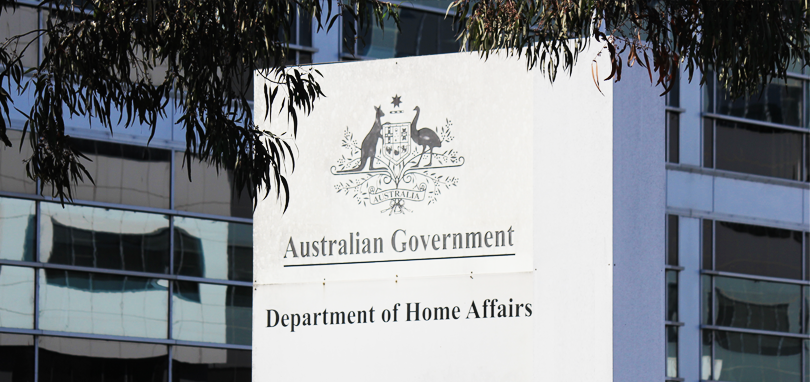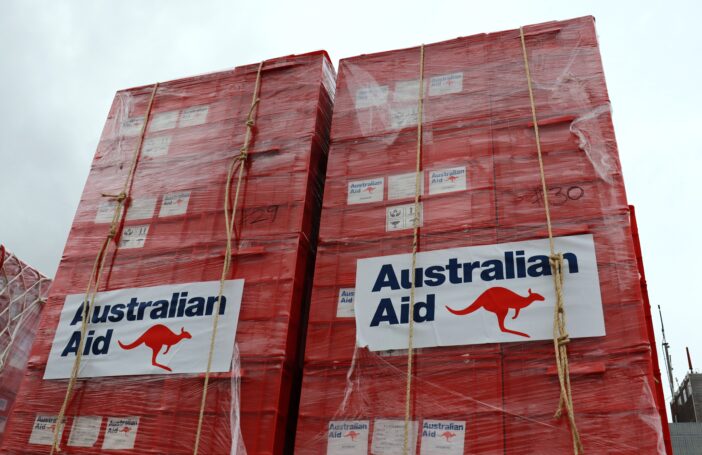Australia is generally considered a beacon of law, order and stability. It certainly outperforms its Pacific neighbours across a range of governance indicators, which suggest that it – along with New Zealand (which usually does better than its trans-Tasman neighbour) – is one of the region’s best governed nations.
Such an assessment is backed up by the Fund for Peace’s Fragile States Index, which has consistently evaluated Australia as one of the least fragile states in Oceania, and indeed the world. In its 2023 index, Australia is ranked as the world’s 11th least fragile state (out of 179 countries), though is bettered by New Zealand which is ranked 4th least fragile. Papua New Guinea, on the other hand, is ranked as the 59th most fragile (the same ranking as Colombia), while Solomon Islands is considered even more fragile at 56th.
Australia’s national institutions and governance have long been viewed by some as the metaphorical light on the hill in a neighbourhood beset by weak institutions, corrupt political elites and declining standards of governance. However, a spate of recent scandals and revelations suggests an altogether less rosy picture about the health and workings of critical parts of Australia’s system of government and the quality of its own governance. Anyone following the proceedings and reports from successive inquiries, and the dogged efforts of a handful of investigative journalists, is more likely to see signs of state fragility than evidence of that shining light.
The most recent revelations, documented in the Home Truths investigation series (The Age, The Sydney Morning Herald and 60 Minutes), have put the spotlight back on what appear to be highly questionable decisions taken by the Department of Home Affairs and its predecessor, the Department of Immigration and Border Protection, regarding the contracting of companies involved in the running of Australia’s controversial offshore asylum seeker processing centres in Nauru and PNG’s Manus Island. These contracts involved enormous sums of Australian taxpayers’ money, and recent disclosures – based on financial data, internal emails and whistleblowers’ accounts – highlight how some of these funds allegedly ended up in the bank accounts and businesses of powerful local politicians.
Unfortunately, concerns around murky offshore processing contracts are nothing new. Over four years ago, similar concerns were raised around a $423 million contract (only around $50 million less than Australia’s bilateral funding to PNG) awarded to Paladin, then a relatively unknown company, to provide security and other services at the facility in Manus.
We commented at the time about the dissonance between, on the one hand, the vulnerability of commonwealth procurement processes – notably limited tenders – and, on the other, the tightening up of the administration of Australia’s aid programs to protect against corruption in recipient countries. We used the term “Gulag politics” to highlight the corrosive impacts of Australia’s offshore processing on political governance in Nauru and PNG. Gulag politics is what happens when the political imperative to ensure continued acquiescence by host governments in incarcerating asylum seekers trumps commitment to improving the quality of political governance in these places. Recent reports switch the focus to the corrosive effects on political governance in Australia itself.
More than four years since initial revelations in early 2019 about illicit payments to Pacific politicians, no charges have ever been laid and no one has been held accountable. Anonymous sources in the Australian Federal Police and Austrac have recently been reported saying that what is needed is a thorough investigation of money trails spanning 10 years and several Australian governments.
Meanwhile, fragilities at the Department of Home Affairs remain. Widespread allegations of criminal elements rorting Australia’s visa and migration system and the allegations of misconduct on Manus and Nauru suggest the department has, according to journalists Nick McKenzie and Marta Pascual Juanola, “failed in two of its core duties: preventing criminal infiltration of Australia and management of offshore processing”.
These recent revelations add to a deluge of reports suggesting deteriorating standards and integrity arising from a hollowing out and politicisation of the Australian bureaucracy. From the shocking findings of the Robodebt inquiry to the PwC scandal, when it comes to government integrity and competence Australia’s light is flickering.
Australians themselves have expressed misgivings about the quality of governmental and democratic institutions for some time. While trust in government surged during the COVID-19 pandemic, the 2023 Edelman Trust Barometer survey found that only 45% trusted the government, down 7 points from the previous year’s survey. Before the pandemic, in 2019, researchers at the ANU found that Australians’ trust in their government was at an all-time low.
If Australia’s new National Anti-Corruption Commission – which will likely be tasked with addressing some of these revelations – and other government agencies fail to bring those accountable for these scandals to justice, it is likely that public trust will fall further.
The scandals we’ve highlighted might not significantly shift Australia’s position on global indices such as the Fragile States Index. Yet, they should provide Australian politicians, diplomats and public servants reason for pause before promoting the superiority of Australia’s governance credentials among its neighbours.





